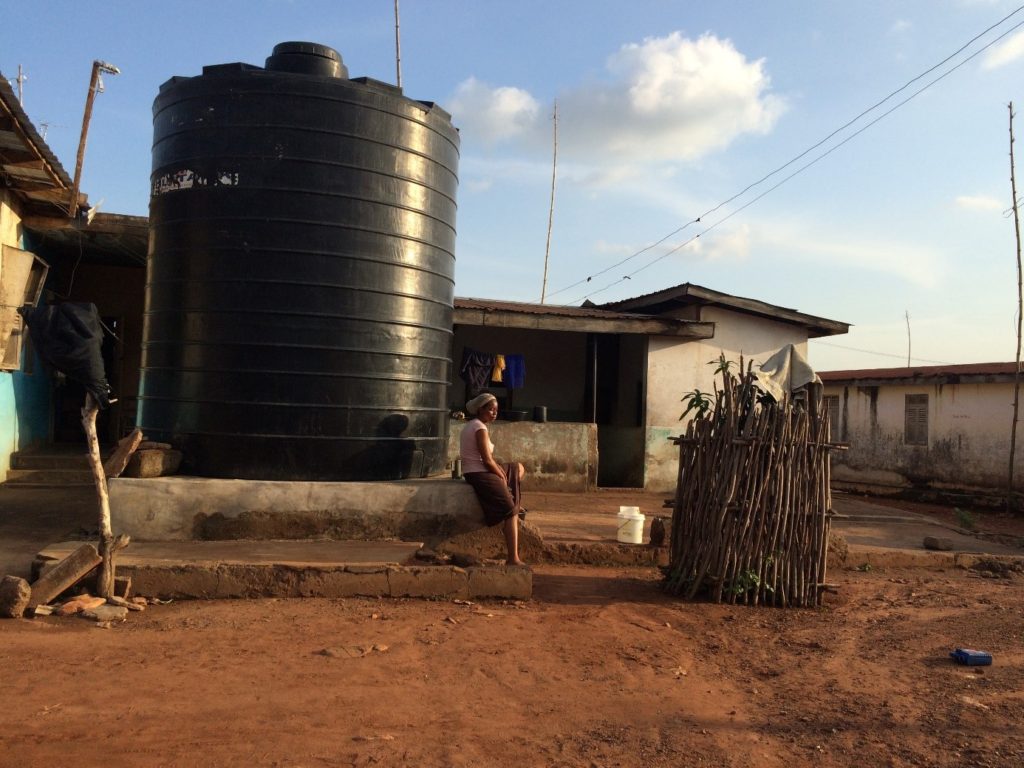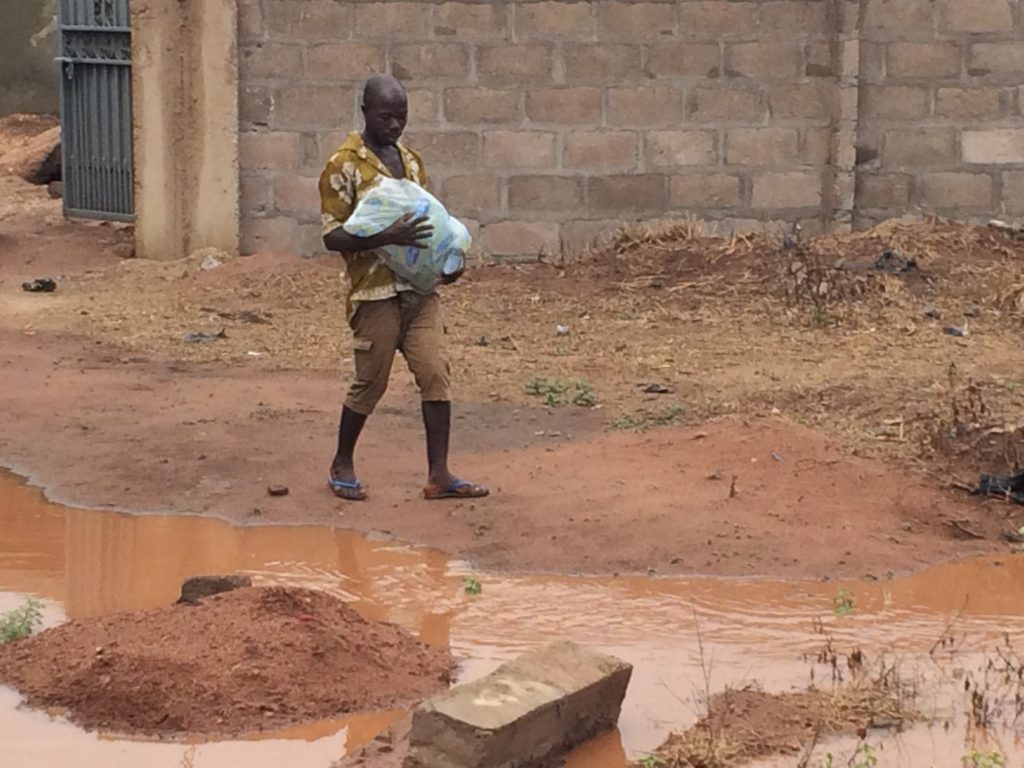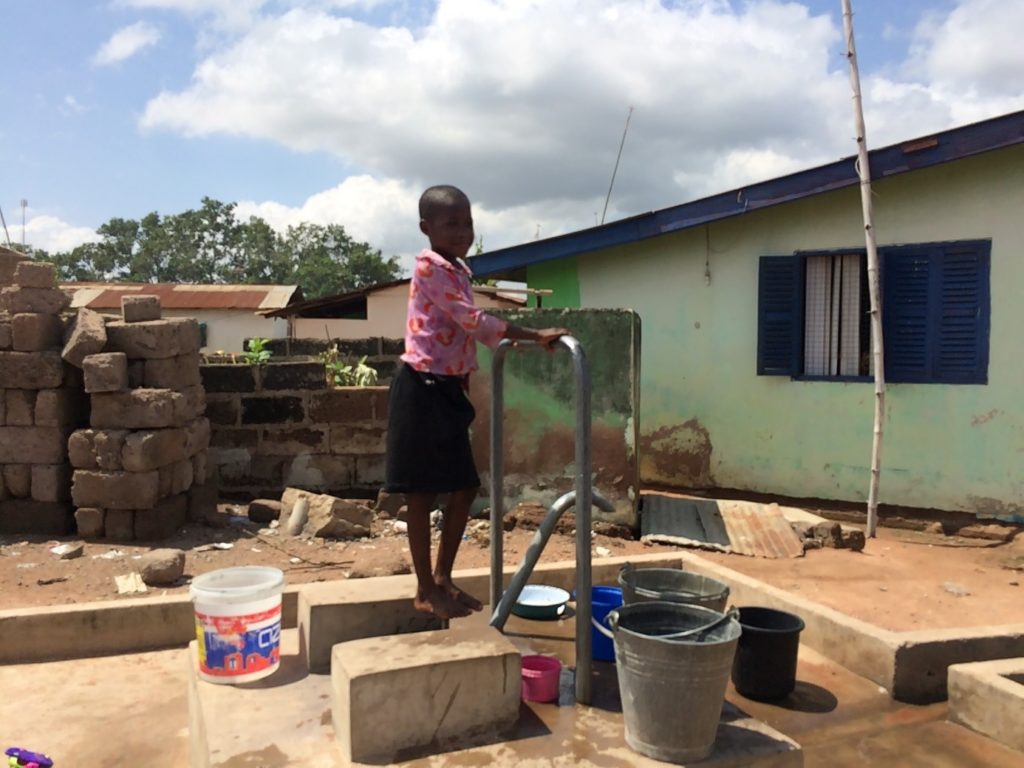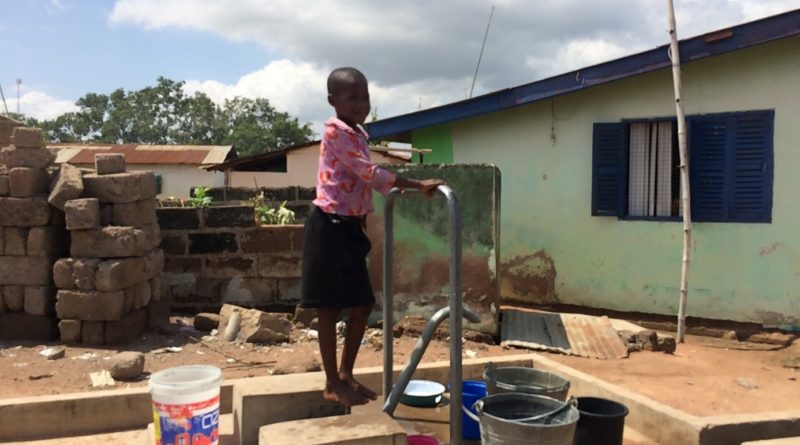To govern or not to govern?
By Dr. Jenny Grönwall
In the ideal world of many city planners, piped water reaches all residents and the responsibility for O&M is clear. What does it mean, then, to have to access water from a multitude of different sources – or to be a reseller of a service that is much in demand – but have nowhere to turn with questions and complaints about this basic human right, no-one to hold accountable?
Dodowa, which sits in the northern part of the Accra Plains in Ghana, serves to illustrate a complex governance landscape characterised by unclear, overlapping and uncoordinated roles in the water services provisioning, along with parallel and more or less unresponsive public and private actors and a lack of involvement and transparency. In short, this problem originates from Dodowa being a peri-urban but rapidly growing and largely unplanned place where a number of authorities work more or less in silos.

Urban dwellers tend to be disadvantaged in terms of public service delivery, often relying instead on groundwater. Many people in Dodowa live too far away from the piped water points or they simply choose to self-supply from dug wells and boreholes. This can function as a convenient, affordable coping mechanism with the users in many ways in control of the source (if not the groundwater resource as such).
Dodowa’s residents were self-sufficient from wells and boreholes until the distribution network was linked to the main grid in 2015. The findings of this study suggest that piped water supplies just over half the population, while the District Assembly and individuals add ever-more groundwater abstraction points. The vast majority of households takes a “combinator approach” to access water from different sources. An increasing user preference for packaged (sachet) water completes the picture of real-life conditions at the outskirts of the Greater Accra Region, but also of a low-income area that is comparatively well off in terms of water in quantitative terms.

However, with parallel bodies tasked with water provisioning and governance, the reliance on wells and boreholes among poor (peri-) urban users has for long been lost in aggregate statistics, making those accountable unresponsive to strategic planning requirements for groundwater as a resource, and to those using it. This means that the end-users’ specific needs and opportunities—and own level of responsibility—are seldom on the agenda. To govern or not to govern groundwater should not be a question to be responded to at whim.
I carried out the research for this paper during October 2015, with heavy El Niño rains interrupting field work and daily life at many occasions. It is based on secondary sources and interviews conducted with research assistant Janix Asare and a household survey covering 300 respondents carried out with T-GroUP researchers Drs. Sampson Oduro-Kwarteng and George Lutterodt. Special thanks go to the assistants Seth Adjei and Francis Andorful, and M.Sc. students Shona Jenkins, Obed Minkah and Alimamy Kamara as well as Dr. Maryam Nastar.
Self-supply and accountability: to govern or not to govern groundwater for the (peri-) urban poor in Accra, Ghana. Available with Open Access from Environmental Earth Sciences, 75(16), 1-10.


